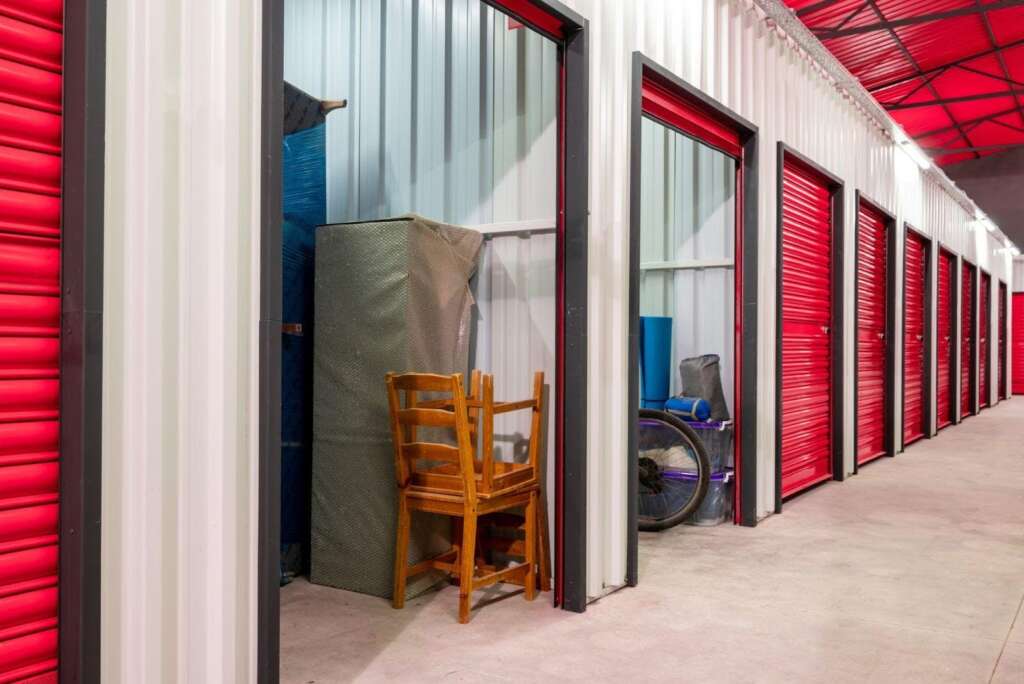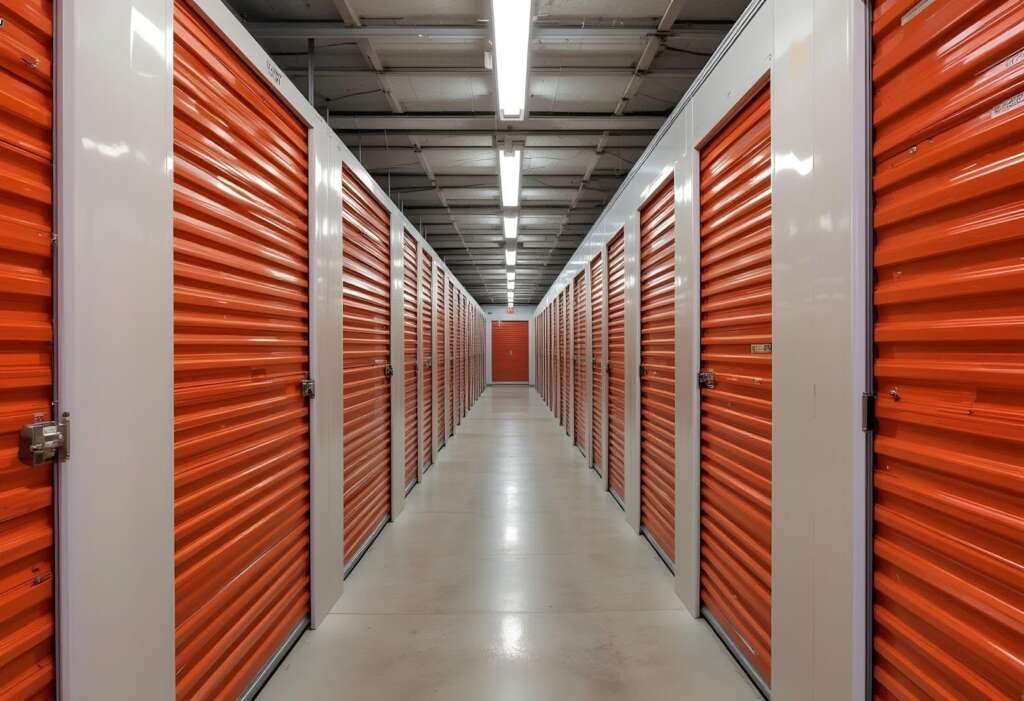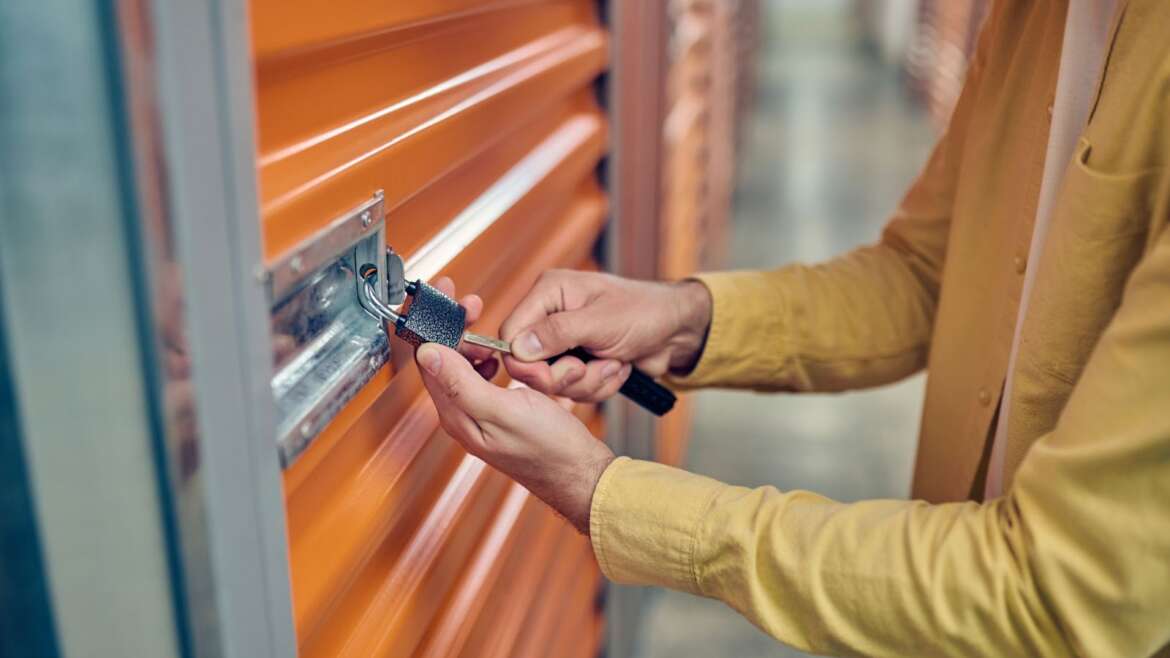Renting a self-storage unit sounds simple until you realize how many options, policies, and features there are to consider. Whether you’re downsizing, storing seasonal items, or making space during a move, asking the right questions will save you time, money, and stress down the road.
A secure self-storage facility should give you more than four walls and a lock. It should offer peace of mind, flexibility, and support that fits your needs.
Before renting storage space, take a few minutes to ask these key questions. You’ll get a clearer picture of what you’re signing up for, and you’ll ensure your belongings stay safe, accessible, and protected.
What type of storage unit do I need?
Before renting a self-storage unit, take time to determine exactly what size you need. Secure self-storage facilities typically offer a range of unit sizes, from compact 5×5 units to large 10×30 spaces and beyond.
Choosing the right size helps you avoid overpaying for space you won’t use or cramming your items into a too-tight unit where things could get damaged.
Start by taking inventory of what you plan to store. Boxes, furniture, seasonal gear, business inventory, or recreational equipment? Each has different space requirements.
If you’re storing fragile or sensitive items, you might also want to ask about climate-controlled options that regulate temperature and humidity.
The way you pack and stack your items also matters. If you’re strategic about using vertical space, you might be able to rent a smaller unit than you originally thought. When renting storage space, always ask if the facility offers size guides or recommendations based on what you’re storing.
What items are not allowed in storage?
When renting a self-storage unit, it’s important to know that not everything is allowed inside. Secure self-storage facilities have clear guidelines about what can and can’t be stored to protect your belongings, the facility, and other tenants.
Start by asking for a list of prohibited items. Most facilities will not allow anything that’s flammable, explosive, or hazardous. That includes gasoline, propane tanks, fireworks, paint thinner, and other chemicals that pose a fire or safety risk. You also can’t store anything perishable, like food or plants, since these can attract pests and lead to damage or infestations.
Firearms, ammunition, and illegal items are not allowed, either. Some facilities may also restrict storing large amounts of cash, high-value jewelry, or sensitive documents due to liability concerns.

How secure is the facility?
Security is a top priority when renting a self-storage unit, especially if you’re storing valuables, sensitive documents, or items with sentimental value. Not all facilities offer the same level of protection, so it’s worth asking detailed questions upfront.
Start with the basics.
Does the property have gated access with individual entry codes?
Are there security cameras monitoring the facility 24/7?
A truly secure self-storage facility will also have bright lighting, well-maintained fencing, and on-site staff or patrols.
When renting storage space, it’s also smart to ask how often they inspect the property and how they handle security incidents. Do they have a clear plan for dealing with break-ins or suspicious activity?
Is climate control available, and do I need it?
If you’re renting a self-storage unit for anything sensitive to temperature or humidity, climate control isn’t optional; it’s essential.
Climate-controlled units maintain a stable environment year-round, protecting your items from extreme heat, freezing temperatures, and moisture buildup that can lead to warping, mold, or damage.
When renting storage space, ask if the facility offers climate-controlled options and what temperature and humidity range they maintain. Some facilities only regulate temperature, while others control both heat and humidity for added protection.
Even if you only store items for a few months, a secure self-storage unit with climate control can give you peace of mind, especially during seasonal changes. It’s a minor upgrade that can prevent costly damage down the road.
What are the access hours and restrictions?
Before renting a self-storage unit, make sure you understand when and how you can access your belongings. Not all facilities offer the same access hours, which can affect your plans, especially if you need frequent or late-night entry.
Ask whether the facility offers 24/7 access or limits entry to business hours. Also, find out if access is available on weekends and holidays, and whether there are any restrictions during certain times of the year.
Some secure self-storage locations use keypad gates that allow tenants in after hours, while others lock down completely outside office hours.
When renting storage space, it’s also a good idea to ask how they manage access. Do you get a personalized entry code? Are there rules about how many people can enter with you? The more you know upfront, the fewer surprises you’ll encounter later.
Are there any hidden fees or long-term commitments?
When renting storage space, ask if there are any startup fees, deposits, or lock purchase requirements. It’s also smart to find out if rates are locked in or subject to change, and how far in advance you’ll be notified of any increases.
You’ll also want to ask about contract terms. Many secure self-storage facilities offer month-to-month rentals, but some may require a minimum stay or charge early termination fees if you move out ahead of schedule. If you’re planning to store long-term, ask if there are discounts for extended stays or auto-pay enrollment.

How does the facility handle payments?
When renting a self-storage unit, it’s important to know how payments are managed so you can avoid late fees or access issues.
Start by asking what payment methods the facility accepts — most secure self-storage providers offer online payments, credit and debit card options, auto-pay, and sometimes in-person payments at the office.
Ask if there’s a customer portal or mobile app where you can manage your account, update billing info, or receive reminders. This is especially helpful if you’re renting storage space long-term or won’t be visiting the facility regularly.
Also, find out when rent is due each month, whether there’s a grace period, and what fees apply if you pay late. Some facilities charge daily late fees after the due date, while others offer more flexibility.
What happens if I miss a payment?
Things don’t always go according to plan — and that’s okay. When you’re renting a self-storage unit, it’s helpful to know how the facility handles payments so you can stay on top of your account with confidence.
Ask about the grace period and what steps the facility takes if a payment is late. Many secure self-storage providers will temporarily restrict access after a set number of days, but they’re often willing to work with you to resolve things quickly. Understanding the policy upfront means no surprises and more peace of mind.
It’s also smart to ask how the facility communicates with tenants — do they send reminders or offer flexible payment options? When renting storage space, it helps to know that your provider is proactive and transparent.
Can I upgrade or downgrade my unit later?
Flexibility matters when renting a self-storage unit since your storage needs can change over time. Maybe you’re decluttering more than expected, or maybe your business inventory is growing faster than planned. Either way, asking if the facility allows you to upgrade or downsize your unit mid-rental is smart.
Some secure self-storage facilities simplify this process, while others may require a new rental agreement or charge a transfer fee. Ask whether switching units affects your billing cycle, rate, or lease terms. It’s also helpful to know if the staff can assist with transferring items between units, especially if you’re moving from one location on the property to another.
If you’re renting storage space for a long period, the ability to adjust your unit size without hassle adds convenience and peace of mind.
Is tenant insurance required or included?
Some secure self-storage providers require tenants to carry insurance, while others offer optional coverage or include it in the monthly rent.
Ask whether your homeowners or renters’ insurance policy extends to items stored off-site. In many cases, it does — but only under certain conditions or limits. If not, you may need to purchase separate tenant insurance through the facility or a third-party provider.
When renting storage space, also ask what the insurance covers: theft, fire, water damage, natural disasters, or vandalism? And what’s the claims process if something goes wrong?
Contact Bear River Storage today
Before you sign any rental agreement, make sure you’re getting the security, flexibility, and service you deserve. At Bear River Storage, we’re here to answer every question and help you choose the right unit with zero guesswork. Whether you’re storing for a month or the long haul, we offer clean, secure self-storage with honest pricing and a team you can count on.
Ready to rent storage space without the stress? Contact Bear River Storage today—we’ll make sure your move-in is simple, smooth, and secure.


